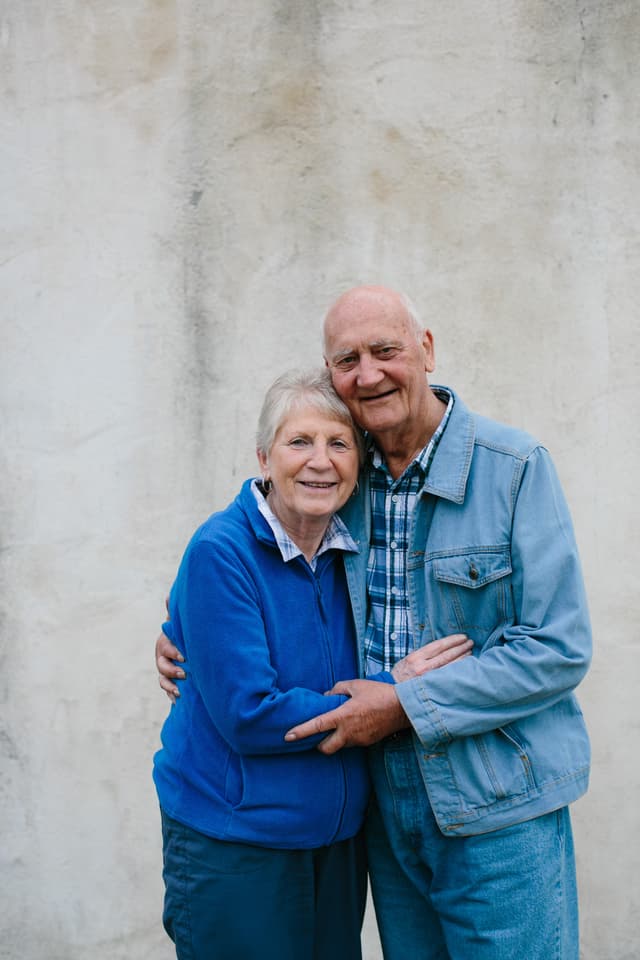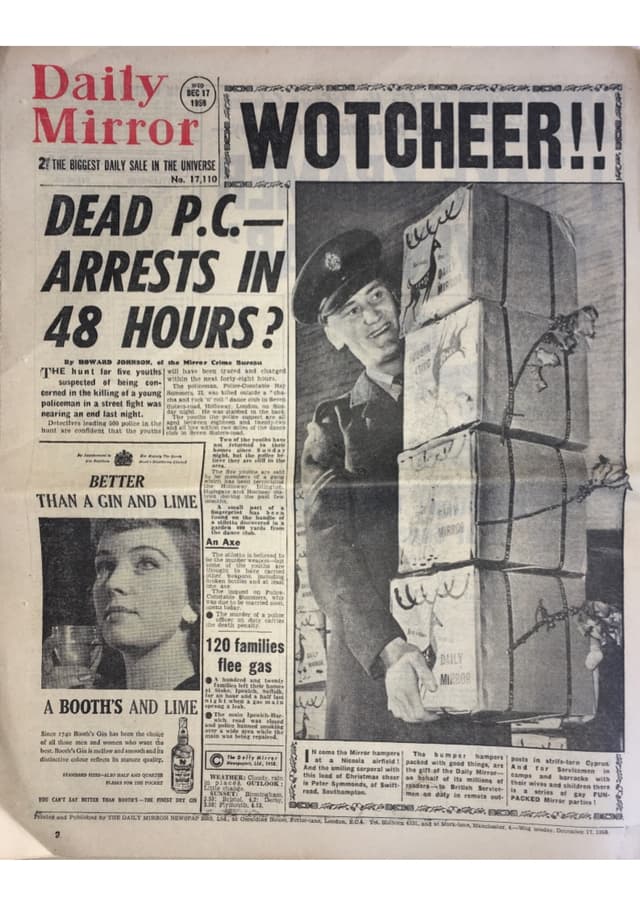The secret of legacy giving is hidden in the life story of your best donors
Ashley Rowthorn shares his thoughts on research into why people leave legacies to charities and how charities should best approach potential donors.
- Written by
- Ashley Rowthorn
- Added
- June 05, 2018

My Grandad was a giant of a man, in so many senses.
At six foot two he seemed to tower above everyone else, especially as a small child. I have fond memories of climbing up on his shoulders feeling like I’d scaled a huge tree, clinging to his smooth bald head, or grabbing at his perfectly trimmed goatee beard for dear life as we bounded down the street.
Living a hundred miles away, we didn’t see each other often, but the time we had left a deep imprint, and one I will carry with me for the rest of my life.
His endless optimism, even in the hardest of circumstances. His gentleness. His terrible sense of humour. His faith. His love for his family. His enduring love for his wife.
But in many ways, I never knew much about his life, certainly his younger years. That was until he decided to write down his life story – and self-published a book which he gave to us all before pancreatic cancer took his life.

Born just before the outbreak of World War II, he was evacuated from Southampton to escape the Blitz, but never lost his love for his hometown, or more accurately, his love of Southampton FC (football club).
His career spanned from a police officer in the Royal Air Force, to coal delivery driver, to travelling preacher, to university warden, to debt counsellor. He took his family, and it seems long suffering wife, on many adventures – from time living in Cyprus, to moving into a derelict farm house after leaving the RAF, to time volunteering in a Romanian orphanage after the fall of communism.
His life was a rich tapestry, as bold, colourful and varied as his collection of Hawaiian shirts*.

*A memory quilt made from my Grandad's extensive collection of somewhat questionable shirts.
Peter Symmonds left his legacy in two main ways. He left a family legacy, of four daughters, 12 grandchildren and 20 great grandchildren (and counting). And he left a legacy of values, carried by the people that knew him well.
But while rich in family and in character, he had little money – never owning a house – and what he did have he gave away in life. If he did have money, I know he would have left a financial legacy too.
He may not have subconsciously thought it, but when he knew time was running out, my Grandad chose to make sure he could live on, by writing down his life story to be a lasting memory for those that were closest to him.
And while his life was unique, this behaviour was quite common – natural in fact. Because through ongoing research into the motivations of legacy giving, we understand there is an almost universal human need to pass something on, whether financial or otherwise, to have our lives live on in some symbolic way after our death.
For a growing number of people this is found in legacy and bequest gifts. Not simply a means of philanthropy, or tax avoidance, we know that they create real value for the donor. Legacy giving is proven to help people age well and to find a new sense of meaning later in life. It is even proven to make donors feel happier.
We know all this, because there has been a proliferation of academic research and understanding in recent years into who leaves legacy and bequest gifts, and why they do it.
But much of this research is hard to access and little understood which is a real problem for fundraisers and the non-profit sector as a whole.
It is a problem because the more we learn about legacy giving, the more we understand that it is completely different to lifetime giving. And without a better understanding into how what and why people leave legacy and bequest gifts, we will be completely ineffective as fundraisers. This could cost the sector literally billions in lost funding, given the transfer of wealth that is projected to take place in most western economies over the next 20-30 years.
But there is hope for fundraisers thanks to the publication of a world’s-first literature review into legacy giving, commissioned by Legacy Voice and carried out by Professor Adrian Sargeant and Dr Claire Routley at the University of Plymouth’s philanthropy team.
In it you will find masses of information from more than 160 published papers across fundraising, marketing, sociology, psychology and behavioural economics.
You will find demographics on who leaves gifts in wills and estate plans, the main motivations and barriers to legacy giving, the influence of charity communications and the importance of stewardship in nurturing and converting legacy gifts.
Some of it might surprise you, like the evidence that younger donors can and do make excellent legacy prospects. Or that many of your best legacy prospects on your mailing file may be being mistaken for low value or lapsed donors.
Some of it might challenge you, like how legacy donors can be your most critical supporters and will scrutinise you to make sure you are fit to receive and take care of their gift.
But we hope most of it will inspire you, to see the potential in this form of giving, to have more conversations with your supporters and to become better, more donor-centred fundraisers as a result.
And we feel your donors will thank and reward you for reading it. Because without a legacy gift, many will find they are unable to complete the last chapter of their life story and write the ending to the biggest problems that have been eluding them in life.
For me, that might become the cure for pancreatic cancer and the means to remember and honour someone important to me. And maybe more besides. I’ve got a bit more of my life story to go yet, and no doubt there will be more twists and turns to come. But whatever lies ahead in my story, it is I’m inspired to make sure it is as well written as my Grandad’s was.
Download a copy of the legacy giving literature at legacyvoice.co.uk/legacy-giving-research
Editor’s update 2023: This article was written in 2018 but in 2022 Legacy Voice shared a review of the above legacy giving literature. It is available at the same link above, for free download today. Take a look!

















